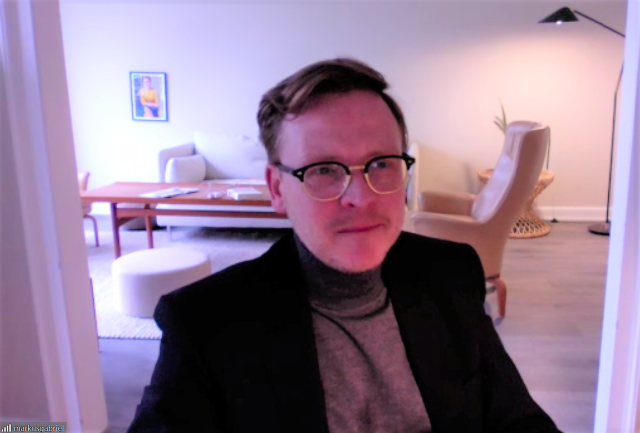On February 10, 2022, Professor Markus Gabriel (University of Bonn) gave a lecture online as the last session of this year’s EAA Winter Institute. Based on his current project in “The Foundations of Value and Values” program at the New Institute, Hamburg, the lecture centered around the idea of “ethical capitalism.” Professor Gabriel addressed various questions relevant to this idea: What would an ethical capitalism look like? What sort of social activities are required for it? What kind of value commitment does it involve?
Professor Gabriel began by pointing out that our social activities are not just complicated in the sense of being incomputable and unpredictable, but also complicated on a higher level because of the multifarious meshwork of value systems—what he calls “normativities”—in which they are situated. We cannot reduce the complexities of normativities, because a recourse to a simple normativity, as is typical in populist politics, would itself end up adding to those complexities. History is an open-ended proliferation of normativities, and there is no value-neutral point of view to address social issues and changes.
Taking these complexities seriously, however, does not force us to be skeptical about the meaning of being committed to any value, or any theory of values whatever. On the contrary, Professor Gabriel moved on to sketch his theory of “new moral realism,” building on the distinction it made between value representations, such as moral judgments, and values themselves, with which we discern “correct or incorrect executions of capacity.”
With this realism of values and recognition of value complexities, Professor Gabriel emphasized that we can think of an “ethical capitalism,” in which social activities are committed to doing good, but that we need a heuristics to find objective values we should cherish. Here he finds an essential role for humanities and social sciences: to bring their knowledge about humans, or human becoming, to form value-laden ethical perspectives on social complexities.
Active discussions concerning various topics followed the lecture. Professor Wang Qin (University of Tokyo) raised a question about the uneasy relationship between politics and values, and one student asked how we can philosophize values and yet avoid being politicized, or used for political purposes, when conflicting normativities are always being politically mobilized. Professor Gabriel, while fully recognizing the problem, suggested that we should understand the relationship between philosophy and politics not in terms of traps and dangers, but in terms of an ongoing dance and entanglement. Philosophy cannot be entirely free from politics, but can always seek to step back and find a universal ground from which to rethink the situation. This image of a “dialectic” dance of philosophy and politics might be, as I take it, an important suggestion for philosophy in East Asia with all its political conundrums.
The lecture was followed by a brief wrap-up session in which each participant from Peking University and the University of Tokyo one by one expressed their thoughts and feelings on finishing the two-day program. Finally, Professor Nakajima concluded the EAA Winter Institute with one simple message: keep thinking.

Reported by UEDA Yuki (EAA Research Assistant)








